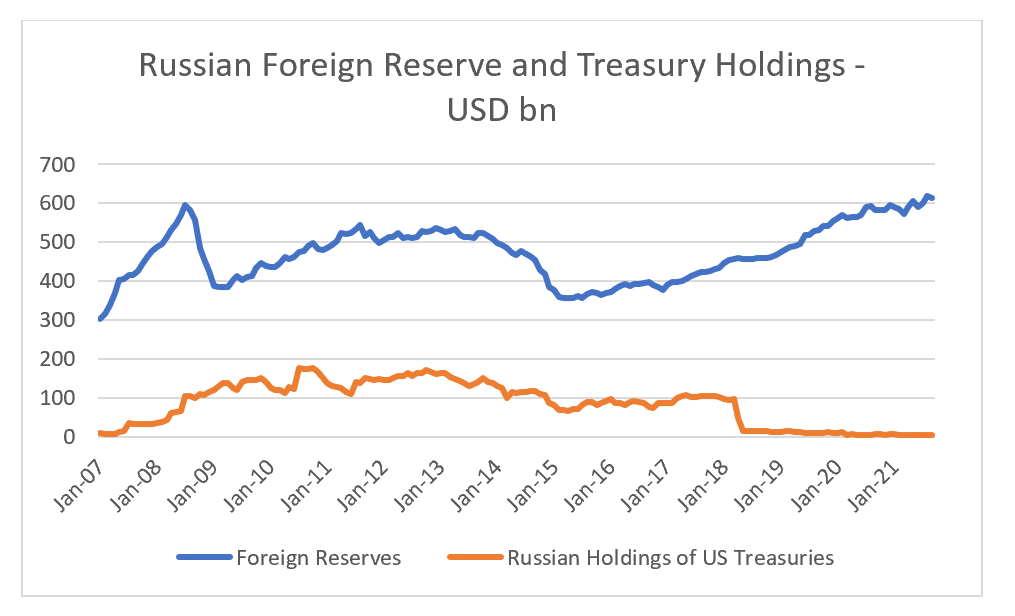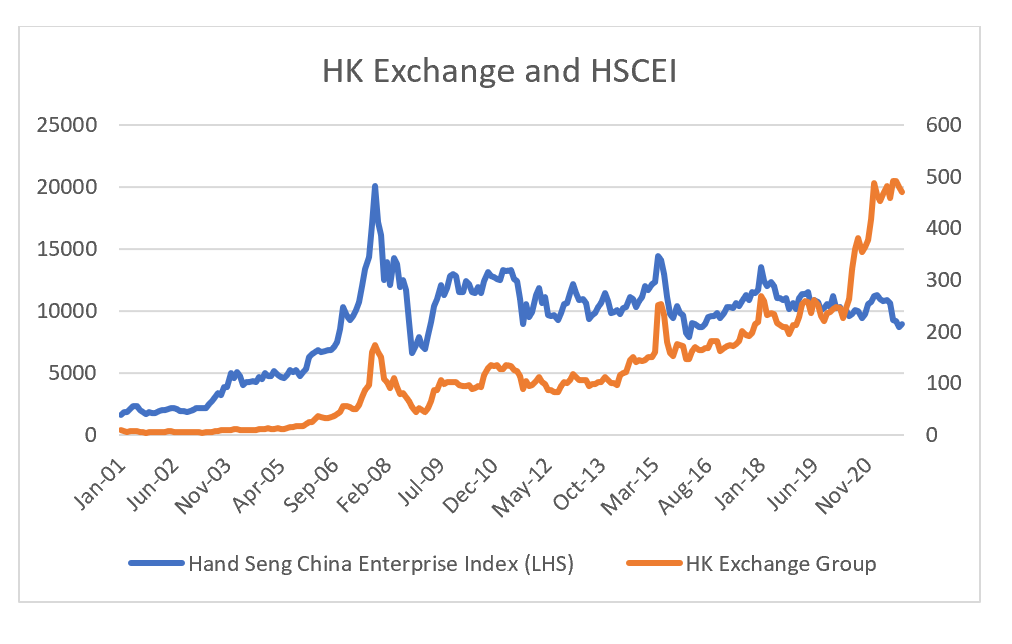IS CHINA WINNING OR LOSING THE CURRENCY WAR - PART II
Are Chinese foreign reserves falling because it does not need US dollars anymore?
As discussed in Part I, falling foreign reserves are typically associated with capital outflows, and an economic or currency crisis of some sort. China lost USD 1.5 trillion of foreign reserves while seemingly maintaining a strong currency, and stable property market. Perhaps China does not need foreign reserves as much as it used to?
The most intriguing reason why China might not need foreign reserves anymore is that more of its key imports are priced in Chinese yuan. One Chinese trade partner, Russia, has sought to complete dedollarise its economy. Its holdings of US treasuries has fallen to zero, even as it has rebuilt its foreign reserves.
With rising commodity prices, Russia is running a trade surplus with China for the first time in many years.
With a mutual interest in reducing the reliance on US dollar financial system, it seems likely much of the trade was price in Euros, Rubles and Chinese Yuan. Given relatively high interest rates in China, the temptation to park the surplus in Chinese government bonds must have been quite strong. Using Chinese net international investment position (NIIP) data, we can see there has been a strong build in foreign ownership of Chinese fixed income.
Russia has relatively little direct trade with the US, so dedollarising its economy has been relatively straight forward. For China, trade and finance connections are much more involved. For the past few years, the Chinese government seems to be acting to encourage Chinese corporates to rely on domestic financing sources over international financing sources. Since 2015, stocks with a listing on the mainland and in Hong Kong have seen a substantially higher valuation on their mainland listing. This makes selling equity in a Chinese Yuan listing substantially more attractive than a Hong Kong listing.
A dedollarisation program by the Chinese government would also make sense in terms of the drastic underperformance of USD Asian High Yield market this year. This underperformance has been driven by Chinese corporates, particularly property developers. Raising the cost of dollar financing should encourage corporates to rely more on Chinese yuan financing, and less on the US dollar.
China “winning” the currency war, means being able to dedollarise, while maintain currency strength, and encouraging more imports to be priced in Chinese Yuan, and for exporters to China to leave the proceeds in Chinese Yuan. The next logical step would to remove the link between Hong Kong dollars and the US dollar. Currently, Hong Kong runs a fully backed currency board, meaning that every Hong Kong dollar in issuance is backed by a US dollar. Hong Kong has large foreign reserves and large holdings of US treasuries.
Intuitively, most financial professionals will reject the idea of the world switching from US dollars to Chinese Yuan. Legacy systems are hard to change. But US policymakers seem keen to provide an incentive to change. It is noticeable that inflation in the US is now much higher than in China. Other metrics such as budget deficits also favour China over the US.
Very low bond yields even for the riskiest debt add to sense that US dollar is not a great store of value. Riskiest corporate debt yields less than inflation in the US.
The purest play I can think of of a transition from a US dollar Centric to world to a Chinese Yuan centric world is Hong Kong Exchange Group. It benefits from the ongoing delisting of China shares from the US, but also would benefit from the narrowing of the discount of Hong Kong listed stocks. Furthermore, it also offers Chinese yuan denominated commodity futures, which would likely become more traded in such a shift. In the last year, HK Exchange has moved very differently to the underlying HSCEI.
There are clear benefits to China being able to move more trade to Chinese Yuan, and to dedollarise its economy. And it appears to me that Chinese policy makers are trying to make that shift work, but the markets currently seem sceptical. However, should market attitudes change, and Chinese outflows turn to inflows, then China will win the currency wars. Current US monetary and fiscal policies seem to encourage such a shift.










